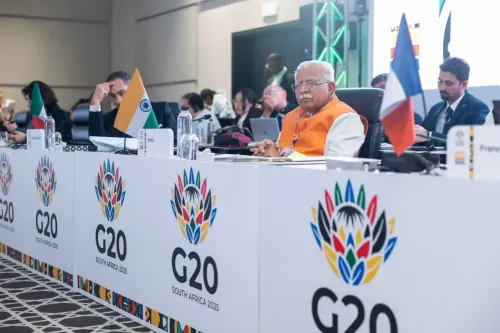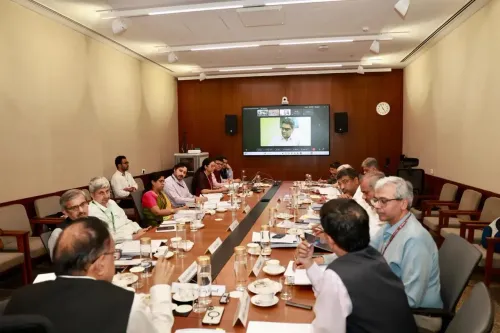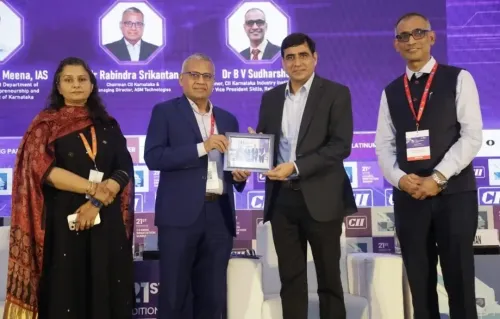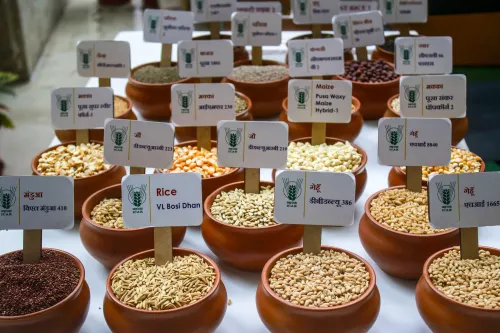India, Japan, and Taiwan: Paving the Way for a Significant Shift in the Semiconductor Industry, Says EAM Jaishankar
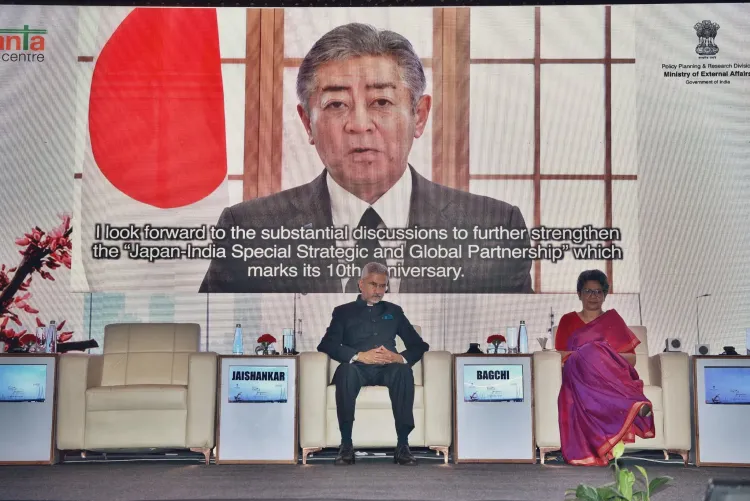
New Delhi, Dec 6 (NationPress) As the global demand for semiconductors continues to rise, the collaboration between India, Japan, and Taiwan could signal a development that is "potentially important" and capable of transforming the geopolitical landscape of the global chip industry, stated External Affairs Minister S. Jaishankar on Friday.
While addressing the India-Japan Forum in the national capital, EAM Jaishankar highlighted that New Delhi has initiated a bold semiconductor initiative, with both India and Japan revitalizing their respective semiconductor sectors, and Taiwan being a crucial element of this significant industry.
"Japan is currently rejuvenating its semiconductor industry, and India, after a prolonged phase of neglect, has launched a semiconductor mission. There are numerous developments underway," he informed the audience.
"It is noteworthy that both nations are collaborating with Taiwan. I perceive the inception of something potentially important here, which could have substantial implications for both countries," EAM Jaishankar remarked.
The minister emphasized that semiconductors represent a critical domain that will be essential in balancing geopolitical relations in the next decade.
A recent analysis by Elara Securities suggested that India should enhance its collaboration with Taiwan and Japan to strengthen its semiconductor ecosystem.
Partnerships with these nations could offer the requisite expertise and investment, thereby boosting India's global standing, as indicated by the report released in September this year.
Taiwan holds a commanding position in global semiconductor manufacturing, with companies like TSMC, which account for 78 percent of the world’s fab manufacturing and 53 percent of the assembly, testing, marking, and packaging (ATMP) market.
Industry predictions estimate the Indian semiconductor market at approximately $38 billion in 2023, with expectations of growing to $109 billion by 2030. The India Semiconductor Mission (ISM) aims to create a sustainable semiconductor and display ecosystem that positions India as a leader in electronics manufacturing and design.
The Union Cabinet, led by Prime Minister Narendra Modi, has sanctioned the establishment of multiple semiconductor units worth billions of dollars across the country, including new plants by Tata Electronics in Dholera, Gujarat, and CG Power in Sanand, Gujarat.
Tata Group and Taiwan's Powerchip Semiconductor Manufacturing Corporation (PSMC) are collaborating to develop a ₹91,000 crore mega semiconductor fabrication facility in Gujarat's Dholera.

